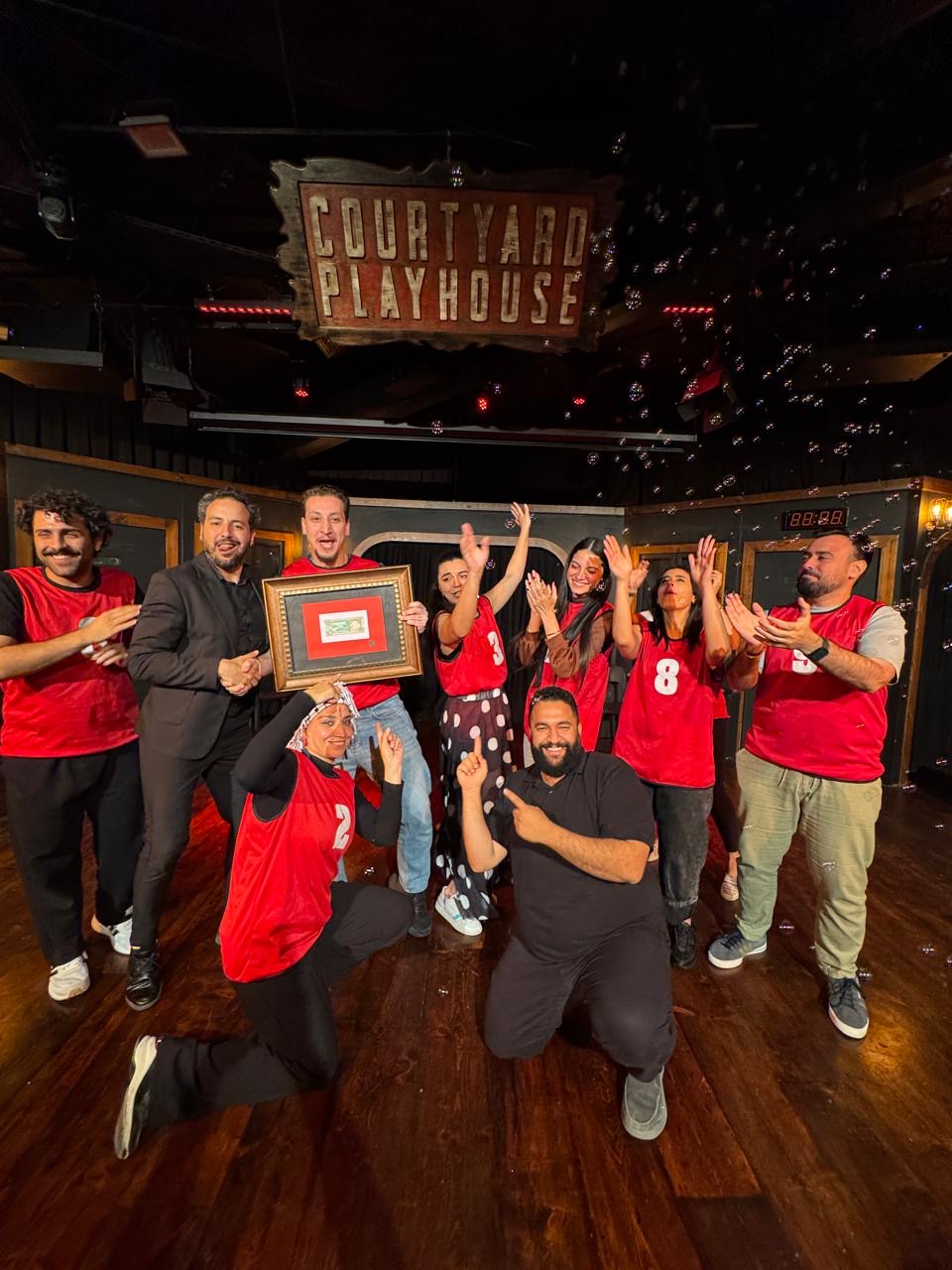Q: What inspired you to bring Maestro to Arabic-speaking audiences?
A: What inspired me to bring Maestro in Arabic is that we’ve always performed it in English — even now, we continue to do so. I had always wondered why we never did it in Arabic. It was a question that kept coming back to me. So, I brought it up with the artistic team, and together we had a thoughtful discussion about how we could bring it to life. We explored different ideas, figured out a way forward, and made it happen — together.
I felt that performing Maestro in Arabic would bring a very unique, rich, and interesting energy — especially since we’re in an Arab country, surrounded by cultural ideas and traditions deeply rooted in the Arab world.
I thought it would be beautiful to present this version at The Courtyard Playhouse, and I waited until we had a solid base of Arabic-speaking players who could bring it to life. Eventually, that happened — and alhamdulillah, we finally started performing it in Arabic.
I also felt a strong urge to create a space where Arabic-speaking improvisers could explore and enjoy the art of improv in their own language. There’s a certain magic in seeing stories emerge naturally, beat by beat, and I knew that experiencing that in Arabic would make it even more powerful and meaningful.
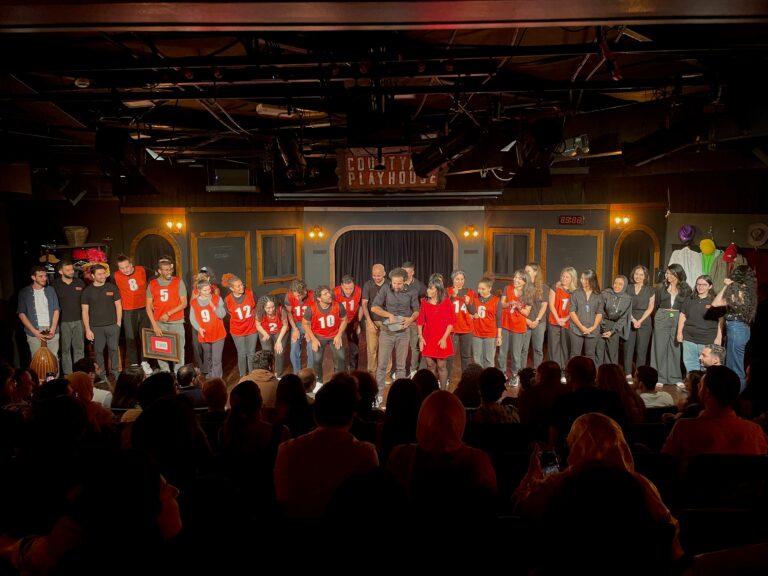
Q: How do you balance the spirit of Keith Johnstone’s format with the cultural nuances of the region?
A: At its heart, the spirit of Keith Johnstone’s Maestro remains unchanged. The values of playfulness, honesty, risk-taking, mutual learning, and the generosity of experienced players supporting newcomers are all still at the core. What naturally evolves is the energy and the cultural references, shaped by the richness of the Arab world—its stories, its rhythms, and its way of expression.
You can also feel a clear difference between the English and Arabic nights. The audience brings a completely different energy. Arabic audiences respond to a different kind of humor, have unique triggers for laughter, and view drama and storytelling through their own cultural lens. It’s something deeply felt when you’re in the room—something that’s hard to describe in exact words, but undeniably present in the vibe of the night.
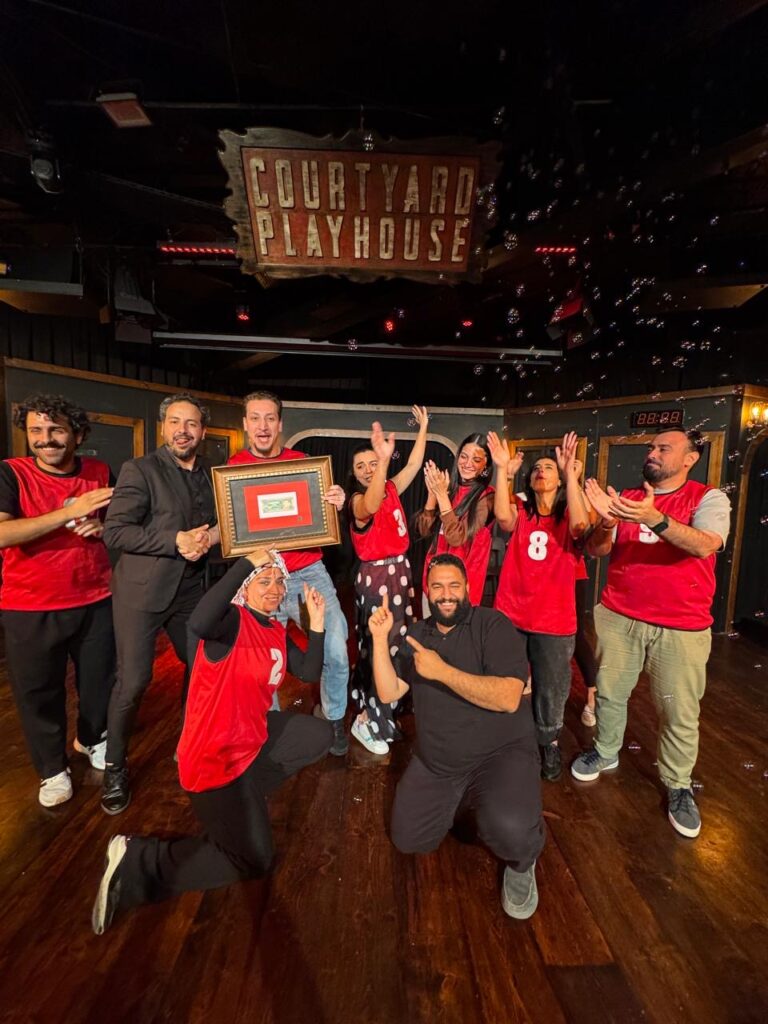
Q: What kind of improvisers thrive in Arabic Maestro?
A: The Arabic Maestro is still relatively new at the Courtyard Playhouse. In the past, we had a few Arabic-speaking players who performed during the English nights, but they always played in English—some of them not even fully comfortable speaking Arabic. Today, in the Arabic Maestro, the majority of our players are newcomers: beginners who are just starting their journey as improvisers, alongside a small number of experienced Arabic-speaking performers.
What we see clearly is that the players who thrive in Maestro are the brave ones—those who take risks, tell honest stories, and allow themselves to be vulnerable. They are the ones who grow the most, gradually developing their skills as improvisers: learning how to read the stories within the scenes, how to play generously with others, how to make their partners look good so that they shine too. They understand that being truly interested on stage makes them interesting to watch.
The Arabic Maestro brings together players from diverse backgrounds, styles, and nationalities, which creates a rich, layered, and exciting night every time. It’s this mix of perspectives and energies that makes the Arabic Maestro not only unique, but also deeply compelling.
Q: Can you share a memorable moment from a past Maestro night?
A: Since the Arabic Maestro began, it has been filled with unforgettable moments. Some of the most powerful ones come from players who have left their home countries in pursuit of their dreams. On stage, they’ve shared deeply honest stories about longing, identity, and the emotional distance between where they are and where they come from. These moments of vulnerability—about missing home, struggling to belong, or holding onto memories—resonate strongly with audiences. They bring depth and emotional truth to the performance, making each night feel personal and real.
Another highlight is the accent game, which always leaves a strong impression. Although we all speak the same language, the range of accents and cultural references is vast. In a city like Dubai, where so many Arabic nationalities come together, this diversity is both familiar and entertaining. The audience loves seeing these differences playfully explored on stage—they laugh, connect, and feel represented in a way that’s both fun and meaningful.
Q: What makes Arabic Maestro different from the English version?
A: What makes it different lies in the makeup of its players and the shared cultural fabric they bring to the stage. In the English Maestro, you might have 15 players from 15 different countries—spanning Europe, the Americas, Africa, and Asia. The diversity is broad, and the stories, humor, and references reflect that global mix.
In the Arabic Maestro, the players come from different Arab countries. While each country has its own identity and nuances, they also share deep cultural roots. The Arabic language—despite its many accents and dialects—acts as a strong connector, creating a sense of unity that shapes the energy and content of the show.
The kind of drama and art that audiences across the Arab world have grown up with plays a major role in shaping what appears on stage. Just like Spain is known for its telenovelas, we have our own version of the Arabic soap opera—rich in emotion, conflict, and heightened storytelling. What makes it even more interesting is that within this shared format, you’ll find variations that speak specifically to different parts of the Arab world. A soap opera that feels deeply relatable to Egyptians might be completely different from one that resonates with Syrians—each with its own tone, pacing, and cultural backdrop. This adds another layer of richness to the Arabic Maestro.
So while the universal human connection to storytelling remains at the heart of both versions of Maestro, in the Arabic Maestro it’s expressed through small, powerful details—details rooted in a shared language, a familiar emotional landscape, and a cultural memory that speaks directly to people who come from or understand the Arab world.
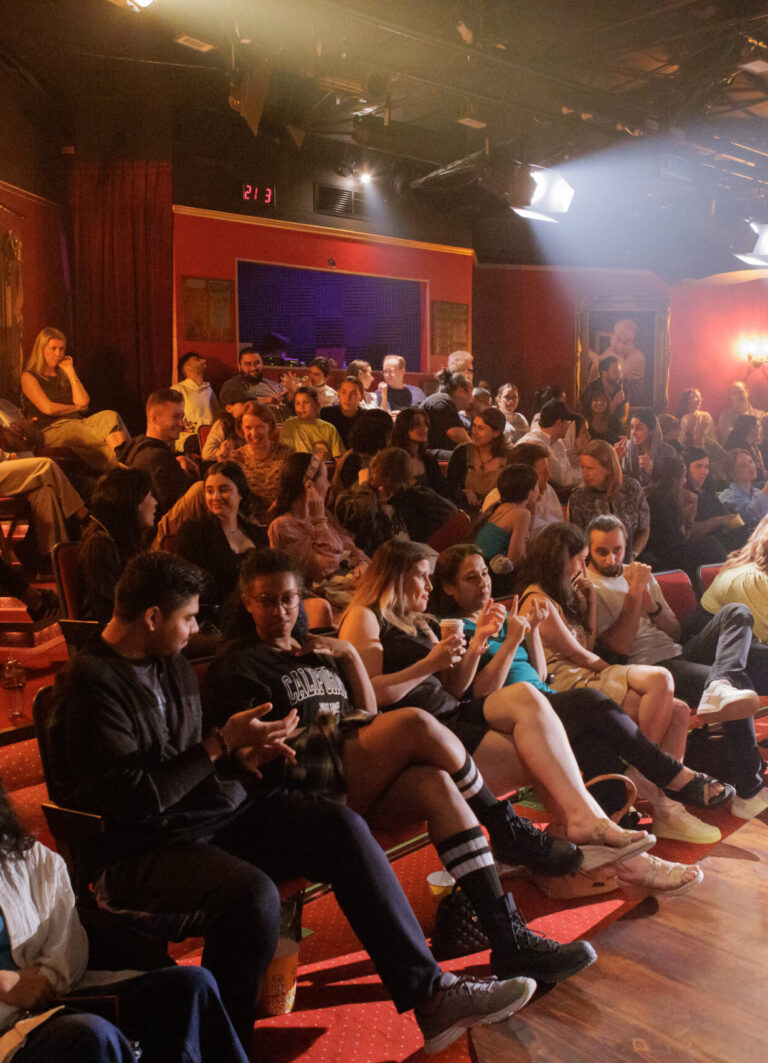
Q: What would you say to someone who’s never been to an improv night before?
A: I tell them: don’t come with any expectations. Just arrive with an open mind, an open heart, and a sense of play. Come ready to enjoy and be part of an experience that’s unlike anything you’ve seen before. You’re not just watching—you’re part of it. Sometimes, you help create what happens on stage. Your energy, your reactions, even your suggestions can shape the entire night.
I assure them that they will experience something truly different and meaningful. They’ll laugh—real, heartfelt laughter—and they’ll also find moments of deep connection with honest, vulnerable stories that reflect real emotions and shared experiences.
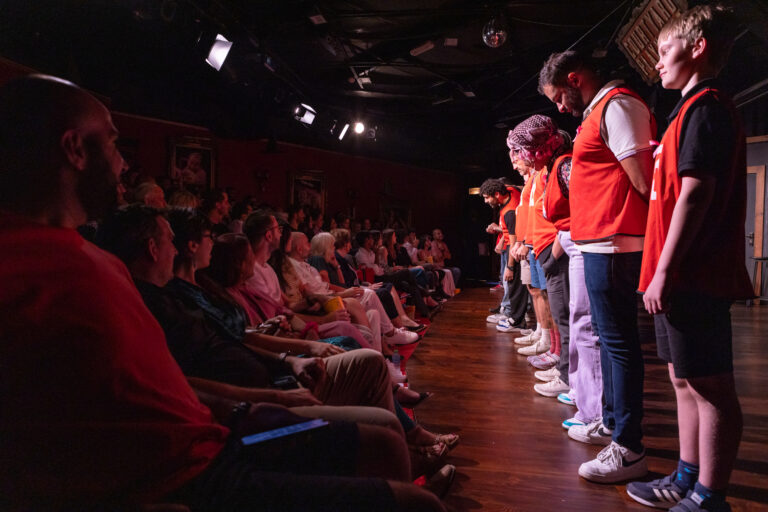
Q: What do you hope the audience walks away with?
A: What I want them to leave with is a sense of connection—a feeling that they were part of something shared and meaningful. I want them to leave with real laughter that lifted their mood, a smile on their face from having had a joyful experience, and a heart that feels a little lighter. I want them to walk away thinking, “That was something special,” and to feel drawn to come back again—soon.
Q: One word to describe Arabic Maestro?
A: ALIVE!
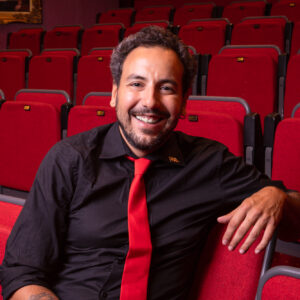
Ahmed Al Achrafi
Ahmed Al Achrafi is a dynamic performer, bilingual facilitator, and graduate of the Sharjah Performing Arts Academy. Since 2011, he has built a diverse career in acting, dance, and corporate training, delivering high-energy performances and workshops that engage and inspire. Known for his charisma and cultural fluency, Ahmed has worked with leading global brands including Bulgari and AstraZeneca, helping teams build confidence, communication, and creativity through theatre-based techniques. His unique ability to blend humour with insight has earned him a reputation as a versatile and impactful trainer and performer at the Courtyard Playhouse and in the UAE.


